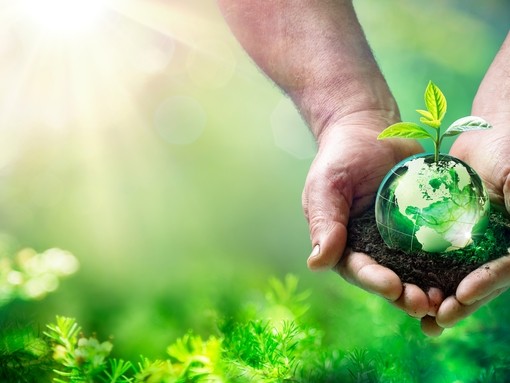
Mastering mindfulness: the superpower of the successful
Contents
- Mindfulness is the ability to be fully present, aware of where we are and what we’re doing, and not reactive or overwhelmed by what’s going on around us.
- Mental fitness: there’s skill in being more Zen
- Facts you might (or might not) know about meditation:
- The business of Mindfulness
- So, what are the true benefits of mindfulness in the workplace?
- How living a sustainable lifestyle can lead to happiness
Contents
Mindfulness is the ability to be fully present, aware of where we are and what we’re doing, and not reactive or overwhelmed by what’s going on around us.
In recent years, mindfulness has become a staple of mental health and wellness in organisations such as Spotify, Google, and Goldman Sachs. In fact, Google has mindfulness training for their employees called “Search Inside Yourself,” which hinges on the proven benefits of meditation.
There’s a reason companies are including this as a requirement for their teams: it works. Mindfulness has been thought to help in several ways, reducing anxiety, heightening productivity, and contributing to a greater sense of presence.
But mindfulness takes practice. In this article, we investigate the art of the mindful and how to harness it to positively impact our lives personally and professionally.

Mental fitness: there’s skill in being more Zen
When people can find peace and happiness within themselves they can then become more successful.
Neurocoach, Heather Crider
Focusing on the brain should be a priority. Most people understand the importance of physical fitness but rarely focus on the importance of mental fitness. Yet mental fitness can be more beneficial in many aspects of life.
Around 8 out of 10 employees have admitted to finding a certain shame in expressing how they feel. Therefore, they feel less likely to reach out for help, due to the stigma surrounding mental health. This can lead to more stressed employees and an unhappy workforce. Meditation instructor Jeff Warren highlights the importance of mindfulness and meditation as a fundamental skill of wellbeing. People can often feel like they’re struggling, whether personally or professionally, but the power of acceptance is what makes us human. Our mental health is certainly a part of us, but it should not define us. It’s all about balance.
Small adjustments such as a shift and focus to mindfulness and meditation can provide a small escape short-term and long-term provide a whole new outlook on life and those around us. Meditation creates a stronger connection between body and mind, and finding that mystical ‘inner peace’.
Facts you might (or might not) know about meditation:
1. It can improve your long-term memory and sharpen your attention
It’s probably not surprising that meditation can sharpen your attention, given that the whole practice is focused around, well, focus. Research has found that mindful meditation can reduce mind-wandering and improve our ability to solve problems and improve long term memory skills.
2. Increases resiliency to stress and compassion to others
Again, a decrease in stress levels is a given, in fact, this is the main reason we head towards things such as meditation. Kids playing up? Cats climbing the curtains? Feeling undervalued at work? Meditation! But meditation has time and time again been noted to increase our patience and compassion for others. Perhaps all that time with our eyes closed and deep breaths helps us to look past the smaller things we might usually be irritated by.
3. Improves success and cognition
Most researchers agree that meditation is linked to success. Studies have shown that mindful meditation can improve problem-solving and decision-making strategies which reflect positively on our professional lives. So, if you’re struggling with that task at work and can’t make up your mind, take 15 minutes just for yourself.
4. Promotes Health and well-being
Meditation is all about the general flow of oneself. It improves one’s self-image and self-worth. Studies have shown that regular mindful meditation can contribute to the decreasing likelihood of developing depression and mood-related disorders.
The business of Mindfulness
Workplace mindfulness is where individuals are mindful of their work settings. But what is to be mindful?
Meditation isn’t the only way to practice mindfulness at work, (though sometimes we may feel like we need those few seconds to take a deep breath and stare at our keyboards). It is above all about being aware of others rather than operating unconsciously. When you’re present at work and aware of what’s going on around you and with others, you can be the best possible version of yourself personally and professionally.
In the lead up to Christmas, work can often feel a little scattered, perhaps even overwhelming. You may even feel a little inundated or demotivated, and with longer and darker nights ahead, the importance of mindfulness in the workplace has never been more vital. It can often be challenging setting boundaries, but it’s an exercise in building your confidence. Every time you place a boundary (whether to others or even yourself) you are allowing yourself breathing space and proving that your desires, energy and wellbeing is important and needs to be valued.
So, what are the true benefits of mindfulness in the workplace?
With the obvious reduction in stress as the number one benefit, practising mindfulness can also help when absorbing new information and with problem-solving and critical thinking. Taking regular breaks like stepping away from your desk to grab a mince pie or time off with friends and family can help rebuild and revitalise. This can contribute to fresh ideas and develop new skills for projects or larger tasks.
Mindfulness is something that you can practice throughout your professional and personal life. It helps facilitate creativity, adaptability and increases your empathy for others. Practising mindfulness helps us understand others point of view and resonate emotionally with them. Some days we may have higher energy level days than others, or it might feel like you’re running on empty. However, trying to keep a focus on mindfulness is likely to have a lasting positive effect and keep your aspirations, goals and energy levels and the forefront. If your mind is clear, you’re more likely to work happier!
How living a sustainable lifestyle can lead to happiness
Living mindfully isn’t just about focusing on yourself and others
Clean air, fresh water, green trees… let’s all agree that sustainable living and a clean environment is better for everyone. It creates a healthier world for us when looking towards the future and it provides us with a sense of purpose by helping us realise, we’re all part of something greater. It also makes people like Sir David Attenborough proud of us and we 100% want that!.
A more sustainable life is a more meaningful one. Be mindful about the planet and people and try dedicating even an hour a week to something like a beach/park clean. Small things can collectively create a big impact.
It’s not uncommon for mindfulness to drop slightly when things get a little too hectic. So, don’t be too hard on yourself, and when you’re feeling a little overwhelmed, take a step back and practice clearing your mind and remember the art of being human. Because if you’re going to rise, you may as well shine!
To find more jobs you can shine in, search our careers page here.
Contents
- Mindfulness is the ability to be fully present, aware of where we are and what we’re doing, and not reactive or overwhelmed by what’s going on around us.
- Mental fitness: there’s skill in being more Zen
- Facts you might (or might not) know about meditation:
- The business of Mindfulness
- So, what are the true benefits of mindfulness in the workplace?
- How living a sustainable lifestyle can lead to happiness
















